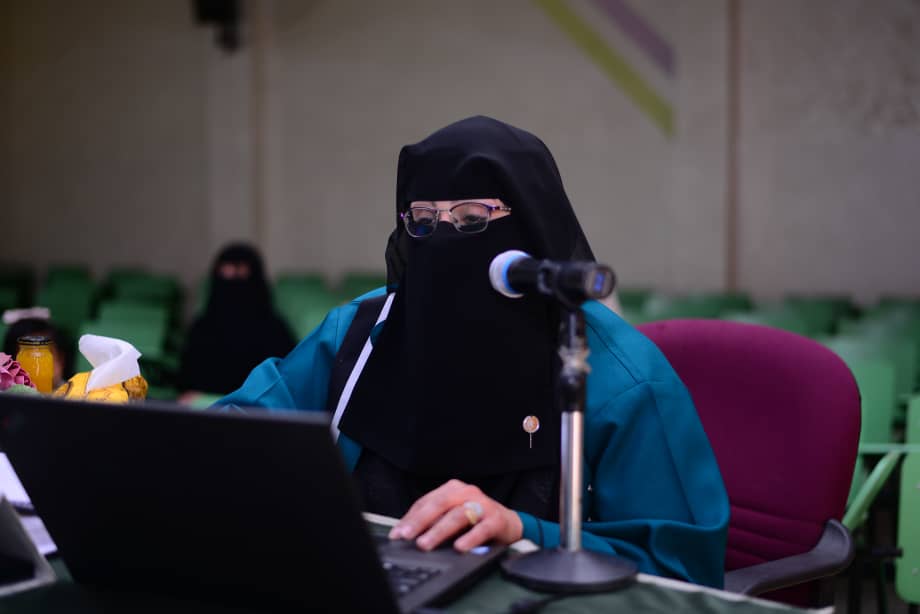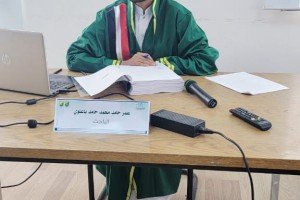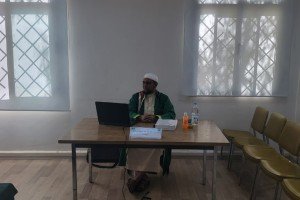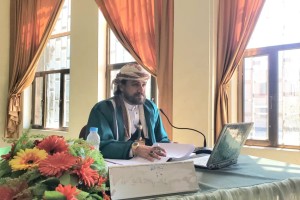Public PhD Viva-Voce Examination of Ms. Najla Ahmed Abdullah Abdulrahman Al-Azizi, from the Department of Psychology, Faculty of Arts & Humanities – Sana’a University

Public PhD Viva-Voce Examination of Ms. Najla Ahmed Abdullah Abdulrahman Al-Azizi, from the Department of Psychology, Faculty of Arts & Humanities – Sana’a University
Ms. Najla Ahmed Abdullah Abdul Rahman Al-Azizi successfully obtained her PhD majoring in Clinical Psychology (Psychotherapy) from the Department of Psychology at the Faculty of Arts & Humanities, Sana’a University. Her dissertation entitled: “The Effectiveness of the Meaning Therapy (Logotherapy) Program in Reducing Adjustment Disorder Among Displaced Yemeni Women,” was defended on Sunday, Rabi’ al-Thani 1446 Hijri, corresponding to October 13, 2024.
The Viva-Voce Committee, which was formed based on a resolution issued by the Post-Graduate Studies and Scientific Research Council, consisted of the following:
Professor Dr. Ilham Abdullah Mohammad Al-Eryani, Sana’a University, Internal Examiner, Chief.
Professor Taha Naji Al-Awbali, External Examiner, Ibb University, Member.
Professor Radhia Ali Mohammad Shamsan, Main Supervisor, Sana’a University, Member.
The primary objective of the dissertation was to assess the efficacy of a logotherapy program in alleviating adjustment disorders among a sample of displaced Yemeni women residing in Sana’a Governorate and the Capital Secretariat.
The findings of the research revealed several key outcomes:
The level of meaning in life among displaced Yemeni women in Sana’a Governorate and the Capital Secretariat ranged from average to high.
The prevalence of adjustment disorder among this population was found to be above average (high).
No significant relationship was identified between the sense of meaning in life and adjustment disorder among displaced Yemeni women in these regions.
In her dissertation, the researcher proposed several recommendations, including:
The Supreme Council for the Management and Coordination of Humanitarian Affairs, the Supreme Authority for Disasters, the Department of Humanitarian Affairs and International Cooperation, along with personnel from government institutions and civil society organizations, should develop guidance programs led by psychological and social specialists aimed at enhancing the sense of meaning in life among displaced individuals.
Psychological treatment programs should be designed to assist in reducing adjustment disorders among displaced women and men.
Media outlets should prioritize psychological awareness initiatives for displaced individuals, focusing on coping strategies through educational programs.
Community leaders and media representatives should work to foster a culture of cooperation and support among citizens, emphasizing reduced rental costs and promoting religious awareness regarding the care and support of neighbors, particularly those who are displaced.
The Viva-Voce was attended by several academics, researchers, students, and several colleagues and family members of the researcher






